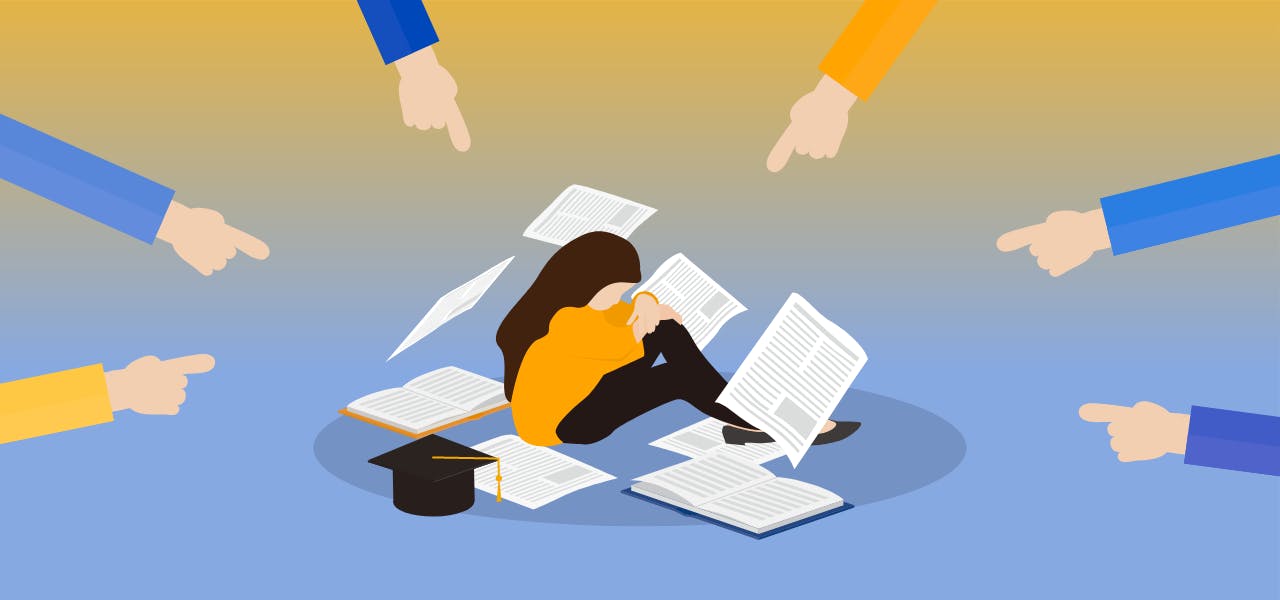Think about your childhood and the warnings from your parents and teachers about the dangers of copying from someone else’s work. From the earliest stages of our education, we are told that we must do our own work, not “cheat” from looking at others’ papers or having them do the job for us. We know it’s “bad,” but do we really understand why until we’re much older?
As scholars, the idea of having our work copied without credit to us has even more potential negative consequences. Since scholarly reputation is premised on factors such as impact and citation indicators, we need to have others reproduce our articles in part. It’s a good thing. But without the credit given to us, that work can be attributed to the other writer and we don’t get our citation numbers boosted. You know firsthand the troubles that come with plagiarism, which is why an allegation that you plagiarized someone else’s work is quite often the most appalling and difficult thing a scholar could go through. If you’ve been falsely accused of plagiarism in your academic work, you must counter these accusations and take control of your future.
What is the Big Deal About Plagiarism in Academics?
Beginning around middle school, most students are taught to start citing their references in their research papers. It’s a good time to begin paying attention to this process, while mistakes made are learning experiences rather than cause for major repercussions. By the end of high school, lack of citations is taken more seriously, but the most that might happen is that a student takes a failing grade for their inadvertent or intentional “cheating.”
In higher education, though, those slaps on the wrist become serious infractions. An allegation of plagiarism, if founded, can result in academic expulsion. While that sounds severe, it’s really to prepare the student for real life. Plagiarism as a scholar can have a significant cost - allegations of plagiarism, founded or unfounded, may be enough to severely tarnish your reputation and even end your career.
The Potential Effects of a Plagiarism Accusation
But with so many litigious instances in which an allegation of plagiarism resulted in a lawsuit against the person claiming it, it’s actually less common to be accused than it sounds. Between the dispute regarding what constitutes plagiarism, the concern of ensuring your allegation is able to be backed up, and the concerns of how the person accused will respond to the allegation, this is not a statement made lightly. The consequences of the accusation will also depend on the person found guilty. If you are newer to the expectations, you can expect that you are probably going to get off lightly as long as you don’t have a history of accusations. You may be given another chance and further education on plagiarism. But if this is not your first rodeo, or you’ve been in the academic sector long enough to know better, a plagiarism allegation could be career-ending.
How to Counter Your False Allegations
No matter how seasoned of a scholar you are, an allegation of plagiarism is always a shock. It’s not easy, but try to stay calm and do not respond until you’ve had time to recover without being emotional. From there, follow these tips to counter your allegations:
● Request a meeting with the professor or editor who submitted the claim
● Ask to receive a copy of the paper with the plagiarized parts highlighted
● Analyze the accusation and compare it to your notes so you can find where you got the information from
● Verify your institution’s policy on plagiarism
● Attempt to resolve the problem between you and the person making the claim
● If you are given a chance to correct the paper without consequences, take it and be appreciative
● If there’s a false allegation but the professor or other accuser is not open to amending their accusation, you can request a formal review with the chair or academic dean
There are plagiarism detectors that you can use to avoid this situation, but intentional plagiarism is different. These are the steps to take to counter false allegations. If you intentionally plagiarized, you will have to be prepared for the potential of severe consequences to your academic or professional career.
